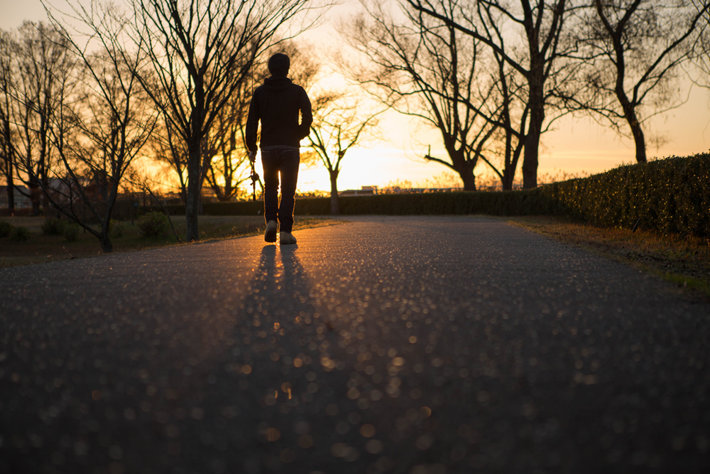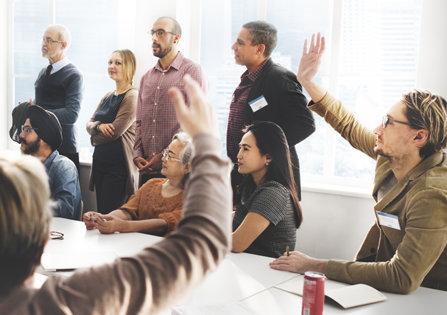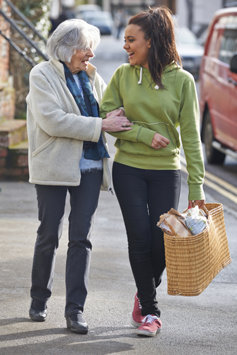What Can You Do to Build a Better World in Recovery?

Being in recovery from drug and alcohol addiction is infinitely preferable to the alternative of living with an active drug addiction or a drinking problem. But that does not mean that living in recovery is easy or straightforward. No one ever said that it would be.
One of the most common struggles that people in recovery face is a powerful feeling of guilt. And why the guilt? Because most recovering addicts are all too aware of the harm that they caused their family members, loved ones, places of work, communities, groups, churches, etc. And that hurts to think about.
When we think about the struggle of the drug addict or the alcoholic, we tend to think of the battle that they face—the hardship, the addiction, the overdose risks, the threat of illnesses and accidents, the struggles to hold a job, to keep a family together, etc. We focus most of our attention on the trials that the addict faces. We often overlook the damage that the addict causes to those around him or her.
But this is a significant factor.
Man is basically good. We have good intentions, and we mean well by our fellow man. So when we commit harmful deeds, most of us feel pretty bad about it. While someone who is actively using drugs and alcohol may view these misdeeds with a clouded mind and judgment, the severity of their transgressions will likely weigh heavily on them once they have beaten their drug habit and are living a sober life.
So what can a recovering addict do to cope with these feelings of guilt? No one wants to live with sorrow, remorse, or regret and for a recovering addict, such sentiments have the threat of relapse written all over them—and that looming threat is indeed something to be concerned about.
The key to removing one’s guilt and to finding higher levels of happiness in their recovery lies in getting involved in positive, supportive, helpful, and compassionate efforts of giving back.
Activities for Giving Back

If one is actively in recovery, below is an excellent variety of activities that one can take part in to give back and be a contributing member of society.
One can:
Volunteer at drug and alcohol addiction treatment centers within the community. A recovering addict will have close and personal knowledge of not only what it is like to struggle with drug addiction or alcoholism, but also what it is like to get clean from drug addiction or alcoholism. If such a person were to help out at a local drug and alcohol rehab center, they could bring their experiences and their optimistic attitude for a better future for all addicts to the table.
Convince other people to get off of drugs and alcohol. Struggling addicts often need a little (or a lot) of encouragement in getting off drugs. The crazy thing is, most addicts actually want help—desperately so—but they are so ingrained into the habit that they do not see help and recovery as being a realistic prospect. One way to give back to the community would be to visit those who need help for a drug problem but who have not yet committed to getting help. They’ll need some extra convincing and encouragement, and someone who has been there and has beaten addiction could be the perfect person for that.
Help those less fortunate. Branching out into other areas and sectors of help is a wise choice as well. One does not have to dedicate their time to helping out in the addiction recovery sphere alone. Volunteering time at church activities, homeless shelters, food drives, community centers, foster care homes, clubs and organizations for at-risk youth, community clean-up efforts, and so on, are all great opportunities for giving back.
Raise awareness of drug addiction and work on prevention efforts within one’s own community. A recovering addict knows how they got hooked on drugs, and they probably know how other people fell into the habit as well. What could be done in their community to prevent others from going down the same path? What could they do to prevent this severe issue from befalling others? Prevention efforts to stop drug problems from cropping up before they even appear are always needed.
Recovering addicts can volunteer for non-profit organizations which have similar goals to their own. Lots of non-profit organizations offer easy access to volunteer opportunities. Some such groups are the Salvation Army, the Soldiers’ Angels program through the VA, various international volunteering opportunities, non-profit drug rehabs, etc. These groups always need volunteers.
One can also learn about how other recovering addicts are helping out in other communities. News and social media is a great way to find unique and truly benevolent ways in which recovering addicts are giving back in their communities.
What It Means to Give Back

We cannot stress enough the importance of giving back. Not only is a recovering addict doing an excellent service to his family, friends, place of work, church, group, community, town, or city by giving back, but they are doing an excellent service to themselves too.
Such actions are mutually beneficial. The individual in recovery has their spiritual and emotional batteries recharged by doing good deeds for others. And as a direct result of their actions, the community improves as well! Volunteering, dedicating oneself to a worthwhile cause, whatever it happens to be, is possibly the best way that any recovering addict can improve their mood and overcome trace feelings of grief and remorse. Such actions are a miraculous boon to the life of anyone in recovery.
Anyone and everyone benefits from helping others. It is ingrained in our nature as good people to experience bone-deep joy and feelings of accomplishment in helping others. We should all commit to making such efforts a more significant part of our lives. Imagine the beautiful world we would live in if all of us—recovering addicts and non-addicts alike—did a little bit more to improve the world around us.
Sources:
- https://www.salvationarmyusa.org/usn/combat-addiction/
- https://soldiersangels.org/veteran-support.html
- https://www.goabroad.com/volunteer-abroad/search/drug-or-alcohol-recovery/volunteer-abroad
- https://www.voa.org/substance-use-disorders
- https://www.kolotv.com/content/news/Recovering-addicts-making-a-difference-in-the-community-.html
- https://www.citynews1130.com/video/recovering-addicts-give-back/


 ®
®